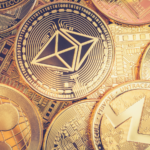The cryptocurrency market is attracting more and more people to invest. However, choosing a suitable exchange is a matter for newbies. Currently, two cryptocurrency exchanges are of great interest to many people: KuCoin and Binance. The following article looks at the two exchanges, KuCoin vs Binance, regarding reputation and transaction fees to help users easily make the most suitable choice.
Table of Contents:
KuCoin and Binance Overview
KuCoin and Binance are two cryptocurrency exchanges that were both launched in 2017.
Both of these exchanges are based in China at launch. Binance and KuCoin allow users to easily open accounts to trade and buy hundreds of different cryptocurrencies in real time. The Trading Markets of Binance and KuCoin are also quite similar, including P2P, Futures, Margin, etc. Both of these exchanges have similar transaction fees, starting at 0.1% and decreasing as users increase the volume of transactions.
What Is KuCoin?
KuCoin is a cryptocurrency exchange founded in 2017 in China. Subsequently, KuCoin’s headquarters were moved to Hong Kong and located in the Seychelles.
The CEO of the KuCoin exchange is Michael Gan, an expert on the Ant Financial (Alibaba) project. He and a team of experienced experts founded KuCoin.
KuCoin only allows trading one cryptocurrency for another. In this exchange, users cannot exchange coins for fiat currencies. So users cannot pay via bank account.
The KuCoin exchange owns its own cryptocurrency, Kucoin Shares (KCS). If users use KCS to pay fees, it will reduce the transaction fee.
KuCoin has several disadvantages that are often mentioned: high fees for buying cryptocurrencies with fiat money (from 3 to 12%). In addition, KuCoin does not allow users to withdraw fiat money, and the customer support service is not appreciated. There is no live chat on KuCoin.
What Is Binance?
Binance is one of the few exchanges that currently has the most significant daily trading volume globally and over 13 million users. CEO Chengpeng Zhao founded Binance in 2017 in Shanghai, China. Now, Binance is the leading multi-functional and flexible exchange with various markets, including coin-coin trading, currency-to-fiat trading and different investments, savings, NFT or Futures, Margin…
Binance is famous for its economic transaction fees of just 0.1%. In addition, if you use the exchange’s cryptocurrency, BNB, the transaction fee is reduced to only 0.05%.
The disadvantage of the Binance exchange is that the customer support service is quite limited through opening a support ticket on the homepage, so the response is slower than in live chat channels. In addition, Binance is heavily limited to U.S. residents. Americans can only use Binance through Binance.US.
Comparison of trading fees of KuCoin and Binance exchange
Binance has a transaction fee of 0.1% and 25% off if you use the BNB or BUSD token to pay the fee. Thus, the user’s transaction fee is only 0.075% – this is a poor fee compared to other cryptocurrency exchanges. In addition, if you trade in large volumes, users can also reduce trading fees on Binance by decreasing the level, by itself by 0.01%.
Like Binance, the transaction fee on KuCoin is also 0.1%, and users receive a reduced fee when paying with KCS tokens. However, the discount on the KuCoin exchange is only from 20%, equivalent to 0.08%. Like Binance, KuCoin also ranks users based on trading volume to reduce transaction fees, with fees starting at 0.02%.
KuCoin vs Binance Deposit Fees
Binance allows users to deposit fiat money into their accounts. Binance deposit fees apply depending on the deposit unit and deposit method.
KuCoin does not support depositing Fiat money into accounts. Users can buy cryptocurrencies with fiat currency and pay fees at the time of the transaction. Prices range from 3% (pay via SEPA) to 12% (pay with Visa/Mastercard or Apple Pay using the Simplex payment channel).
Both KuCoin and Binance are free to deposit cryptocurrencies.
Compare Withdrawal Fees on KuCoin vs Binance Exchange
Like the deposit, Binance charges a fiat withdrawal fee depending on the currency and payment method. Cryptocurrency withdrawal fees on Binance are also based on each cryptocurrency.
KuCoin does not allow fiat withdrawals from the exchange. And like Binance, the cryptocurrency withdrawal fees on KuCoin depend on the cryptocurrency chosen by the user.
Types of assets traded on KuCoin vs Binance
Both Binance and KuCoin are well-known exchanges that offer hundreds of different altcoins. Binance has almost 250 altcoins and KuCoin has about 200 altcoins.
Binance users can trade through the intermediary token BNB or USDT. Meanwhile, KuCoin allows users to trade with KCS, USDT, NEO or BTC Cash.
KuCoin is more competitive in intermediate tokens, but Binance’s transaction fees are higher.
Features of Binance vs KuCoin
Binance and KuCoin are both known as cross-functional exchanges and often exceed the needs of investors new to the cryptocurrency market.
In addition to centralized trading, Binance is famous for additional features such as staking, NFT market, margin trading, futures trading, investing, savings, staking…
In addition, Binance has also developed a Visa card associated with Binance that allows users to pay for and use the services of 60 million merchants worldwide. This card is free to issue, has no management or purchase fees and can get up to 8% cashback. It is one of the rare and outstanding advantages of Binance over other cryptocurrency exchanges.
KuCoin, in addition to the normal trading function, also has additional features such as crypto lending, trading bot, margin trading, futures trading. The trading bot feature is free, and users can track the bots with the best performance and allow their settings to be copied.
KuCoin also allows users to save cryptocurrencies and take an interest in the exchange by buying and holding KCS and get automatic interest every day (APR up to 22%). In addition, users on KuCoin can also lend cryptocurrency for a period of 7, 14 or 28 days and receive daily interest.
Compare the security level of Binance vs KuCoin.
Binance stores customers’ cryptographic assets in cold storage and provides many advanced security features for Binance accounts such as 2FA, pick-up address management, account access device management, etc. In 2019, Binance was hacked, causing more than $40 million in damages. Subsequently, they compensated the customer for the loss and, four months later, received the ISO 27001 certificate after passing the strict information security management conditions.
Like Binance, the KuCoin exchange also applies many security features for customers, such as multi-level encryption, multi-factor authentication, or micro-wallet. In addition, the KuCoin exchange also has a department to monitor customers’ daily transactions. In 2020, KuCoin was hacked and $150 million in damages. Subsequently, KuCoin recovered most of the money. The rest compensated customers.
Both Binance and KuCoin are classified as safe and transparent cryptocurrency exchanges.
Binance vs KuCoin customer service.
Neither KuCoin nor Binance have live chat customer support. It is a significant disadvantage with both decks. However, KuCoin supports customers via telegram 24 hours with a reasonably fast response rate. And Binance uses a customer support system through ticketing. While Binance’s responsiveness may not be instantaneous, it is handled quite conveniently for customers and is valued better than many other crypto exchanges.
Conclusion
In general, Binance and KuCoin are two multifunctional cryptocurrency exchanges that operate reliably and transparently. However, Binance is most famous with over 13 million people, while KuCoin has over 1 million customers. Binance has the upper hand after using discount rates in transaction fees.
The only thing that sets Kucoin apart from Binance is probably the free trading bot feature and crypto lending platform that is most active among lenders and borrowers. Meanwhile, Binance only allows users to lend to the Binance exchange itself.


